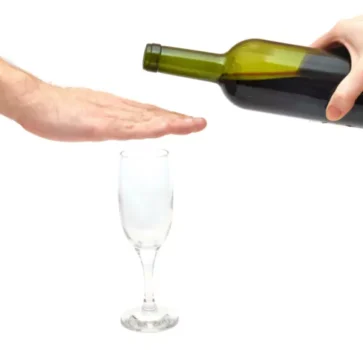Life After Relapse How to Bounce Back and Start Over

Anger is an emotion that suggests there is something causing distress or emotional strain on the person. When you do not set realistic expectations, you will not anticipate the challenges you face after treatment either. Any recovering addict will face many challenges after treatment, things that will test you and shake your resolve. Facing challenges post-recovery and doing so well is determined by how you view your path to full, lifelong recovery. If you set unrealistic expectations, then you will end up being more likely to fail.
Types of Support Networks
- Compare this to the relapse rate of hypertension or asthma, at 50 to 70 percent.
- Negative feelings like depression require positive management, however, many sufferers turn to unhealthy coping mechanisms.
- But if you can, there are big benefits to talking about your experience.
- If you’re ready to make a positive impact in your community, explore UC’s online BS in Substance Abuse Counseling program and take the first step toward a fulfilling career.
It will start out as a minor relapse, just one drink, or one incident of taking a drug. Part of you may wish to remain sober, and will see the benefits. However, there will also be another part which is finding it increasingly difficult to battle your cravings, and may be secretly considering a relapse.
Relapse Prevention Techniques
When you take steps to recover, you will need to readdress the relationships which may have suffered as a result of your relapse. If you have relapsed, there is probably a hole in your recovery plan. A relapse does not mean your plan failed, it just means it needs reworking.
The Importance of Learning from Relapse
Recovery from AUD is marked by stages of abstinence, withdrawal, repair, and growth. While the process may take several years, the outcome is a happier, healthier life where you have the freedom to fulfill your full potential. This stage typically starts 3–5 years after you’ve stopped drinking. People often need to address past trauma or familial issues during this time. Some people may feel so “broken” that they almost feel they can no longer experience joy and confidence, or have healthy relationships again. During this stage, most people focus their energy on coping with cravings and resisting the urge to drink.
- Understanding which environmental factors are likely to cause a person to reuse can help them avoid these situations and prevent returning to use.
- This means making time for eating, sleeping, and having fun, as well as behaving kind enough toward yourself that you permit yourself these necessities.
- One thought can trigger a cascade of events that eventually leads to a relapse.
- That’s why it’s important to never use alone and to carry an opioid reversal drug such as Narcan.
Identify and Avoid Triggers

You need to manage your emotions more effectively in order to cut out this stage. However, the simple act of ignoring your emotions, and the difficult circumstances that you are dealing with can actually be the primary stepping stone to relapsing later on. Traditional relapse is when you consciously make a decision to drink alcohol. A freelapse is an accidental relapse, in which the use of alcohol is unintentional. A majority of people who are recovering from an addiction do face a very high likelihood of relapsing. By Geralyn Dexter, PhD, LMHCDexter has a doctorate in psychology and is a licensed mental health counselor with a focus on suicidal ideation, self-harm, and mood disorders.
Is Relapse Part of Recovery?

Let your relapse be a learning experience for the future, and use it to plan for potential triggers you might encounter. In this way, your relapse becomes a source of strength and motivation that moves you forward in your recovery journey. Another essential point to recognize is that a relapse doesn’t have to be a return to active addiction. It is entirely possible to have a lapse in your sobriety and quickly return to an active and healthy life in recovery.
Think about a time when sobriety felt good, even if it was your childhood and think about what made you feel good and confident, and work to be in that place once more. Doing so gives a sense of a renewed state of life, helping to prevent further relapsing. Once you have reflected on the experience of relapsing you will have better scope to predict challenges you will face in the future. Your body will need to detox after what to do after a relapse a relapse, and you may feel shame or guilt as well as doubt, low self-esteem, fatigue, aggression, anxiety about being judged, and a lack of motivation as well. They can also provide support, and adjust your plan as needed, and help to organise family counselling if needed to ensure you have stability at home. Remember not to judge yourself, and remain positive about the opportunity that you have to regain your sobriety, making it your focus.

Co-Occurring Mental Health Disorders
If a person has ongoing emotional, physical and/or mental health issues, they may need to use additional strategies to help their recovery and prevent relapse. Take action as soon as possible to get back on the path to recovery. Developing a relapse prevention plan that includes identifying triggers, coping strategies, and support systems is essential. Relapse is a multifaceted issue influenced by various factors, including psychological, social, and environmental triggers. It’s essential to recognize that relapse is a process rather than a single event. It often begins with emotional and mental relapse before leading to physical relapse.
- Try to recraft your relapse prevention plan; use the help of those around you to ensure that it does not happen again.
- Being able to accept that you made this mistake will help you to stay motivated during the beginning stages of relapsing.
- In mental health, it would involve the return of symptoms after a period of recovery.
How to Prevent a Relapse
Clinical evidence suggests that the most common causes of relapse during this stage are neglecting self-care or not attending self-help groups. Join our supportive sober community where each day becomes a step towards personal growth and lasting positive change. While they may seem like two simple and very similar words, there is a significant difference between being sober and being in recovery. In short, being sober simply means not using alcohol or other substances but not necessarily recovered in other ways. Rates and predictors of relapse after natural and treated remission from alcohol use disorders.
